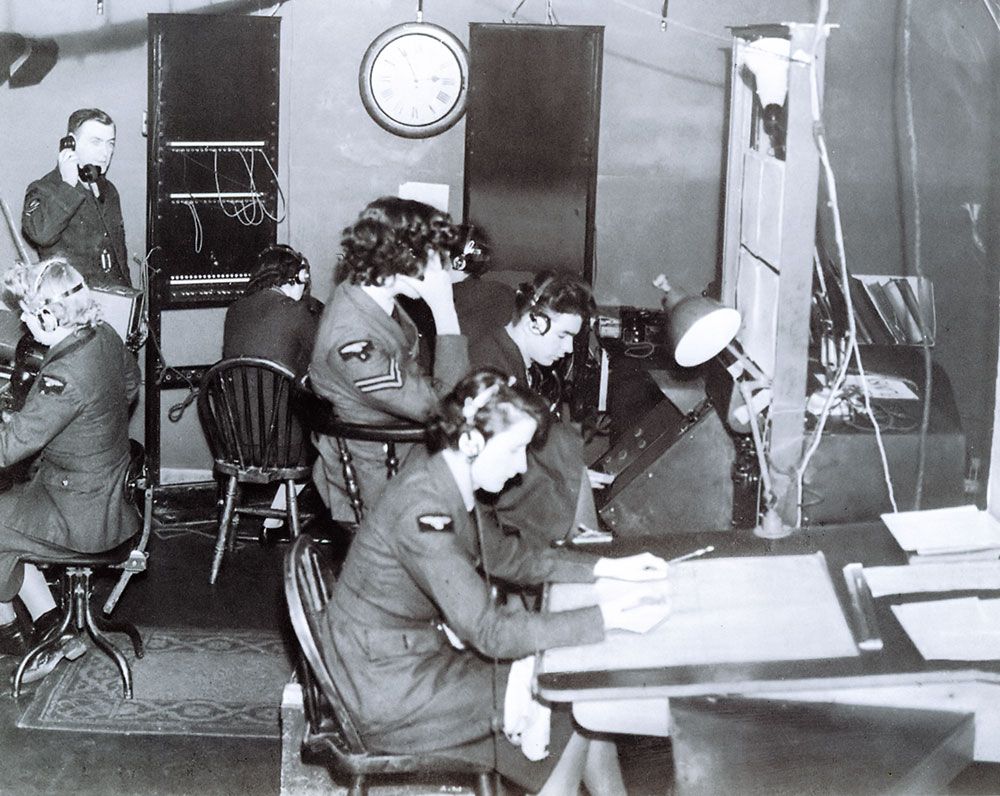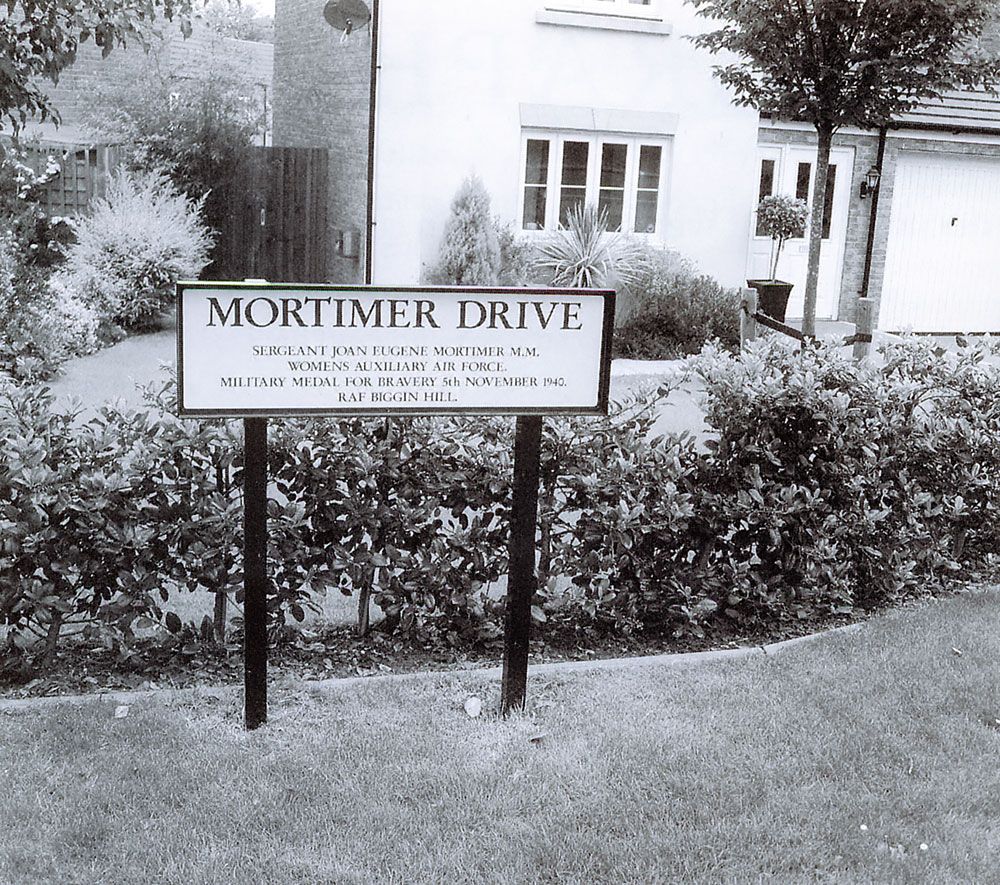Part 88.
14. W. A. A. F. in Air Raids
It is now commonplace to hear that in German attacks on R.A.F. aerodromes the W.A.A.F. personnel displayed great courage and coolness. . . . (Air Ministry Bulletin.)
ONE cool, sunny morning I was talking to my senior sergeant (flight-sergeant) in the guard-room about the ordinary routine of the day, when the station broadcast ordered one squadron "to come to readiness." I told her that I might as well stay where I was for the time being, and go with her down one of the airwomen's trenches nearby should there prove to be a raid. But as the minutes passed and there were no further announcements, I started off towards my office in the station headquarters building.
As I entered headquarters the sirens wailed and we were told to go to the trenches. A few seconds later we heard one squadron roar into the air, then another, then still another, and finally the civilian air-raid warnings sounded in the surrounding country. We laughed and chatted on our way to the trenches, as this was no unusual occurrence.
We had hardly settled down when the noise of the patrol�ling aircraft overhead changed from a constant buzz to the zoom and groan of aircraft in a dog-fight. Then aircraft and machine-guns barked and sputtered, while plane after plane dove down, with a head-splitting, nerve-shattering roar. I had no idea that so much could happen so quickly and remember thinking: " I suppose one feels like this in a bad earthquake."
Then there was a lull, broken only by the sound of our aircraft returning to refuel and re-arm. A moment later a messenger arrived to report that a trench had been hit on the edge of the aerodrome. The padre and another officer followed the messenger to the scene of the disaster, and I thought I'd better go and see if the airwomen were all right in their trenches. All was now deathly silent. I climbed through debris and round craters back towards the W.A.A.F. guard-room. As I drew nearer, there was a strong smell of escaping gas. The mains had been hit. Another bomb had fallen on the airwomen's trench near the guard-room, burying the women who were sheltering inside.
After a while I returned to headquarters to report to the Station Commander, and was told that the W.A.A.F. Officers' Mess could not be used as there was a delayed-action bomb in the garden.
After some food, I went over to the W.A.A.F. cookhouse to see how things were going. The airwomen's Mess was the only one which had not been damaged by the raid, and I could see that they would have to do all the cooking for the station for a bit. On the way there I saw something like a white pillow lying on the ground. As I approached to pick it up a voice said out of the darkness, "I shouldn't touch that if I was you, Miss, it's marking a delayed-action bomb." I thanked him very much, and trying hard not to look as though I was walking any quicker than I had been previously, I proceeded on my way to the cookhouse.
The airwomen were cooking virtually in the dark. But to their eternal credit they were producing delicious smelling sausages and mash to an endless stream of men going past a service hatch.
The next afternoon, as I was returning to the aerodrome from my "billet-hunting " expedition with another W.A.A.F. officer, we were caught in a second attack. Our choices of action were few. There was no time to get to a trench, so we hurriedly put on our tin hats and ran into a nearby wood. As we did so, all the preliminary noises of the previous day began again. The edge of the wood was near a cross-roads, and as we ducked under the trees the police "bell-shelter " opened and a policeman shouted, " You'd better come in here." We did not hesitate, but scrambled in quickly. It was a tight squeeze, but it became much worse when a bus-driver, who also wanted admission, banged on the door. Somehow�I still don't know how�we got him inside.
We waited till the noise had died down before we emerged, weighing, I am sure, much less. By the time we reached the aerodrome a fierce fire was raging in one quarter, but this time all my airwomen had escaped injury.
This story covers a period of almost forty-eight hours. It started with a clean, tidy station, efficient to perfection; it ends with buildings destroyed, telephone lines blown up, and the aerodrome itself cratered. But not for one second did this station cease to be operational: it never failed to keep open its communications, and it still got fed! For their heroic work three of my airwomen were later awarded Military Medals.

WAAFs and airmen in the front line at the Chain Home Station above Ventnor on the Isle of Wight.

Across the road from Biggin Hill airfield, in the area that formerly housed the RAF married quarters, are roads named after the three WAAFs who won the Military Medal in the Battle of Britain. The date is that on which the award was gazetted.